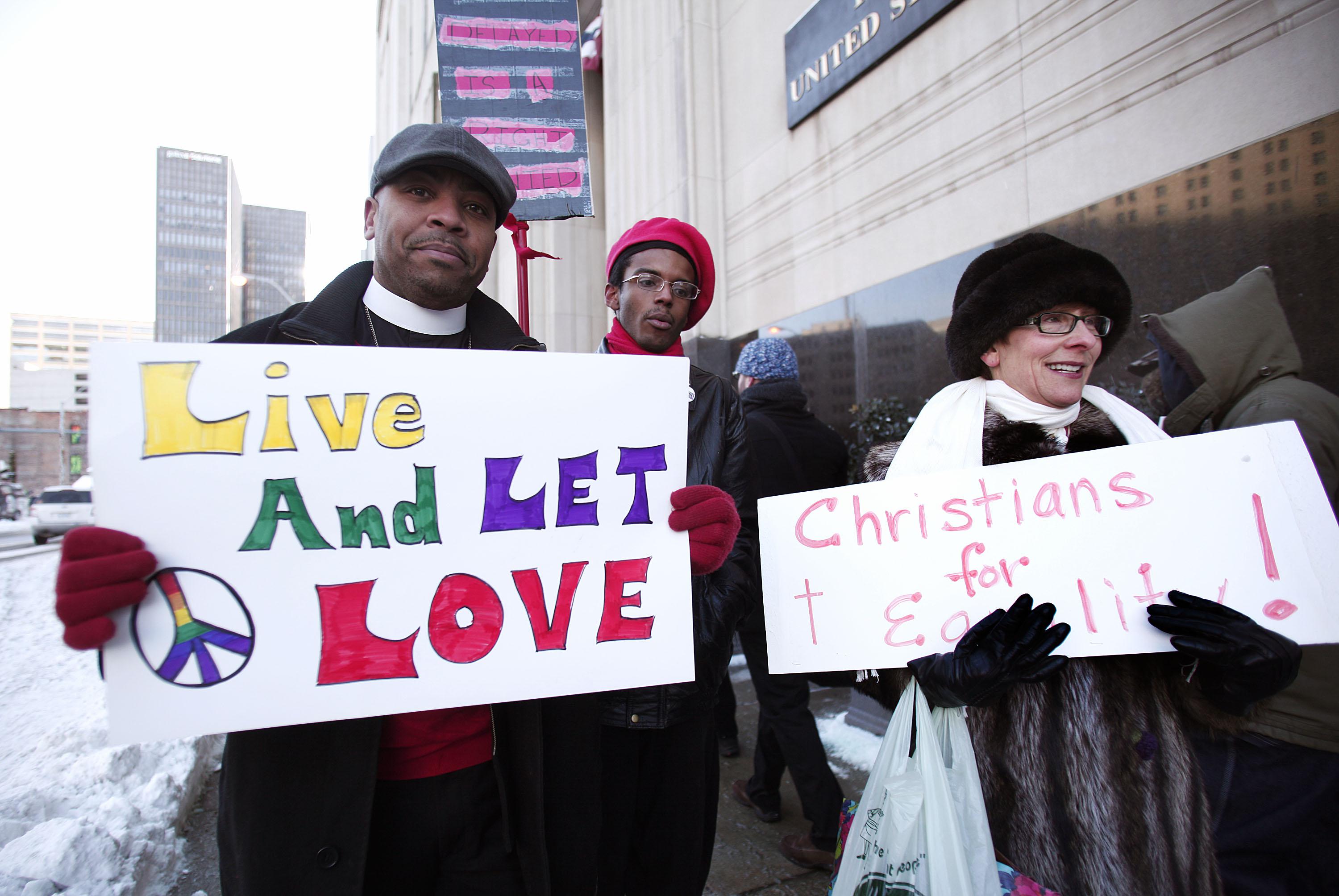This week, 20 Republican officeholders, operatives, and party officials—some past, some present—filed a legal brief endorsing same-sex marriage. The list of signers includes former Sen. Alan Simpson of Wyoming, former Sen. Nancy Kassebaum of Kansas, and former Gov. Gary Johnson of New Mexico. This isn’t just another brief for gay rights, freedom, or “marriage equality.” It reaffirms some fairly conservative ideas. Can liberals accept these ideas? Let’s take a look at the top three.
1. Marriage is better than cohabitation. The brief quotes a 2010 report from the National Marriage Project:
Children who grow up with cohabiting couples tend to have more negative life outcomes compared to those growing up with married couples. Prominent reasons are that cohabiting couples have a much higher breakup rate than do married couples, a lower level of household income, and a higher level of child abuse and domestic violence.
It’s one thing to say that everyone has a right to marry. It’s another thing to suggest that people who could marry, but who choose instead to cohabit, are raising their kids in a setting that is, on average, less healthy. I’m OK with this statement, because statistically, it’s true. Are you OK with it?
2. The government has an economic interest in promoting marriage. “Marriage is the foundation of the secure families that form the building blocks of our communities,” says the brief. In this way, marriage “reduces the need for reliance on the State.” The brief quotes a law review article co-authored by John Yoo, the former Bush administration official who defended waterboarding:
If the government believes that marriage has positive benefits for society, some or all of those benefits may attach to same-sex marriages as well. Stable relationships may produce more personal income and less demands on welfare and unemployment programs; it may create the best conditions for the rearing of children; and it may encourage individuals to invest and save for the future.
By asserting these collective interests, the brief reinforce the premise that the government has valid grounds to steer people toward marriage. The tax code, for instance, can legitimately discriminate between married and cohabiting couples. Are you OK with that?
3. Marriage is an exclusive, lifelong commitment. The brief says family-related public policies “should promote … responsibility, fidelity, commitment, and stability.” Specifically, it argues, “Extending civil marriage to same-sex couples is a clear endorsement of the multiple benefits of marriage—including stability, lifetime commitment, and financial support during crisis and old age.” It quotes a court’s reasoning that married same-sex couples will set the same “example that married opposite-sex couples set for their unmarried counterparts”—namely, “the formation of committed, exclusive relationships.”
Lifetime commitment. Exclusive relationships. Those aren’t idle words. They nail you down. The definition of marriage is expanding to include same-sex couples, but it’s not expanding to include temporary or non-exclusive arrangements. You can still make such arrangements, of course, and you can have affairs or trysts in your marriage. But you’re not changing the definition of marriage. You’re just violating it.
For conservatives, these principles make gay marriage easier to accept. They show that it’s possible to accept same-sex couples without accepting polygamy, casual divorce, or other changes to our understanding of marriage. But for liberals, they’re a challenge. Do you support gay marriage because you oppose all discrimination among couples and families? Or do you agree that the government can and should discriminate, as long as it isn’t based on sexual orientation?
